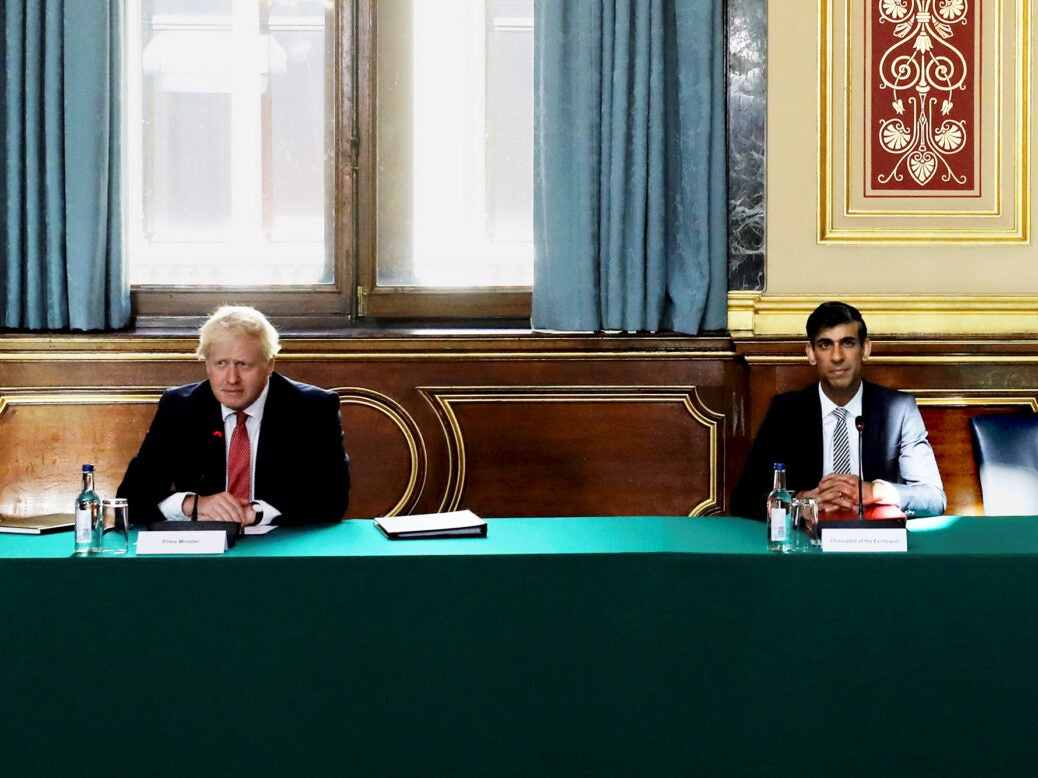
As Lady Bracknell might observe, “To lose one prime minister may be regarded as a misfortune, to lose two looks like carelessness.” That, however, is the position in which the Conservative Party now finds itself, following the downfall of both Boris Johnson and Liz Truss in a matter of months.
But how should we regard this sequence of events? Is it simply a story of two leaders whose personal limitations and failings proved to be their undoing? Or is what happened symptomatic of a deeply divided party that is impossible to bring back together?
Johnson is a great communicator. He is a giant among pygmies in that respect, not only within his party but across the Commons as a whole. But as well as being less adept at the day-to-day business of governing, it has long been known that he has a somewhat loose relationship with the truth – Tory MPs were not the first to give him the sack because of that. While the trigger for the mass resignations from his government was his claim that he didn’t know about previous harassment allegations against the then deputy chief whip, Christopher Pincher, this was but the tipping point following the “partygate” scandal.
Truss is not in the same oratorical league as Johnson. But she is a politician of firm views who arguably has a sharper vision than her predecessor of the kind of country she would like to create. However, that ideological conviction is apparently not accompanied by the intellectual agility needed to respond to changing circumstances – as was perfectly illustrated by her insistence on unfunded tax cuts even as the economic storm clouds darkened. As the Times columnist, Matthew Parris, rather unkindly put it, Truss represented “nothing beyond a leaping self-confidence that’s almost endearing in its wide-eyed disregard for the forces of political gravity”.
Personal failings and limitations are certainly part of the story. Different characters might have avoided the political storms that resulted in the resignations of Johnson and Truss. But does that mean that a more adept leader has a reasonable prospect of uniting the Conservatives?
There are, of course, ideological differences in the party. Though all Tory MPs appear to be reconciled to Brexit, some imagine it to deliver a deregulated “Singapore-upon-Thames”, while others are more interested in immigration control and economic nationalism. Some MPs share Truss’s concern about the growth in size of the state after Covid-19, while others emphasise the need for “compassionate conservatism”. Tory MPs in Red Wall seats want to see “levelling up” but that is less of a priority for those in the party’s traditional southern heartlands.
[See also: Who would win if an election was held today?]
The new leader will have to navigate these differences, and it is far from clear that they are unbridgeable. It should be possible to give everyone at least some of what they want. However, the opening hours of the leadership contest have made it apparent that the personal antagonisms and party factionalism could make unity impossible. Within hours of Truss’s resignation, and reports that Johnson would try to secure a second coming, there were suggestions some Tory MPs would resign the whip. While others might even resign their seat and force a by-election. They seem unlikely to be reconciled to Johnson’s return as the tenant of 10 Downing Street.
But equally, some of those who back Johnson would have anyone but Rishi Sunak as prime minister – they blame the former chancellor for allowing public spending and tax to balloon, and for triggering the wave of resignations that led to Johnson’s fall. Having succeeded in denying him the Tory crown in the summer, they do not want to see him claim it now.
This division is also evident among Tory members. According to a YouGov poll of them this week, a majority think that Johnson (63 per cent) and Sunak (60 per cent) would, respectively, be a good replacement for Truss. So there are contingents reconciled to either winning the contest. However, beneath these numbers there is a clear divide. Among those who voted last time for Truss, 76 per cent believe Johnson would be a good replacement. But among those who backed Sunak, only 43 per cent hold that view.
Meanwhile, although nearly everyone who voted for Sunak last time (95 per cent) believe he would still be a good choice, only 35 per cent of Truss’s supporters have the same view.
Rather than being a fresh contest, a Sunak-Johnson battle would likely be a rerun of the factional feuds of the summer. That does not mean the result will be the same, but it does suggest that neither man can heal the divisions that currently bedevil the Conservatives. And that is not an outcome that a party 33 points behind in the polls can afford.
[See also: Does Britain want Boris Johnson back?]


